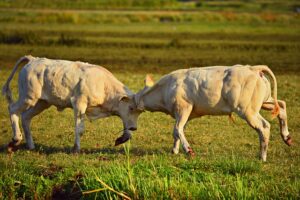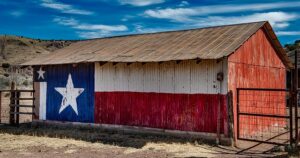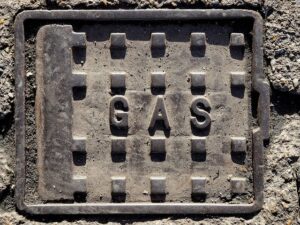
Scientific conventions are not often that interesting. A select few, sure, but on the whole it’s not the first place you’d take a date. Their superb intellectual prowess notwithstanding, a number of engineers and other people in the sciences are awful at presenting their research in an interesting way. But despite how boring facts can be, everyone walks around repeating statistics and other figures they’ve heard recently. With our natural aversions to dry material, how do writers make truths seem important?
Robert Kunzig is an author that wrote a surprisingly grabbing piece titled “The Carnivore’s Dilemma.” In it, he presents a number of facts he’s uncovered in his quest to answer the question “Is it okay for Americans to eat beef?” Controversial question? Surely. In a country that prizes individual freedoms above all else, he first ensnares the reader with a challenge to the security of freedom. Better yet, it’s simplicity causes the reader to ask themselves “why shouldn’t I eat beef?”
After that he presents his journey towards answering why. He roams down to Texas to speak with panhandle farmers who’ve been in the cattle and cattle feed businesses since the 1960’s. Therein lies the second attention grabbing trait – a call to authority. Texas has long been associated with cowboys and the cattle trade – this is the state whose official animal is the longhorn. By making bedfellows with a commonly believed authority Kunzig boosts his credibility.

There are a number of controversies surrounding beef raising, from environmental to ethical concerns. Kunzig expertly addresses these questions by consistently looking at both sides. From the environmental standpoint, he argues, it would definitely make a difference to cut down on personal consumption of beef. On the flip side, would cutting out beef entirely see that much of a net difference?
The answer, turns out, is not really – while there would be a 2% difference in carbon emissions, 2% would be the cap, as most of the carbon emissions come primarily from transporting feed and beef to their respective consumers. Cutting out the beef would only solve the beef-produced emissions, after the farmers went back to shipping their feeds elsewhere.

On the ethics side, the same cautious analysis of both sides is also employed. Kunzig first posits that yes, certain hormones and fattening grains administered to cattle have been discontinued, but also presents that entirely “natural” grass-fed beef let out twice as much carbon in, ah, natural bodily function.
Throughout the piece, Kunzig raises controversial questions against commonly accepted ideas, and then breaks down both sides of the argument, refusing to throw his hat in the ring or choose sides. This bipartisan reporting style makes it less an attack on any one ideology, but a consideration of all aspects, good and bad, of the issues. It’s been shown that criticism is taken far better when preceded by a compliment. This is how Kunzig portrays his work – shows a benefit to the system, a critique, and then flips to the opposing side and does the same. Just like the cattle in question, it becomes more than just black and white.
